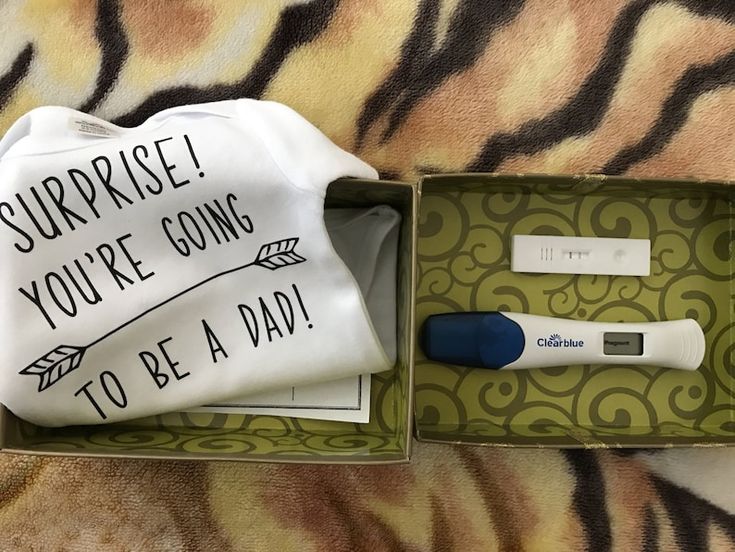Obstetrics

Congratulations! You're pregnant!
Finding out you’re pregnant
We can help you find out whether or not you’re pregnant by performing a pregnancy test. This is the regular test that you can perform at home and it can detect pregnancies one to two weeks after a missed period.
What happens now that I'm pregnant?
Once you reach implantation you have a cute ball of cells implanted into the inner lining of your uterus (Want to know how we got here and what implantation is? [link to fertility]). This ball of cells forms an interface with the lining of the uterus, which will later become the placenta. It is a phenomenal organ that is part Mommy and part Baby, and delivers nourishment (and love) from the former to the latter.
A part of the little ball of Baby’s cells will form a stalk that will later become the umbilical cord, at the end of which the rest of Baby’s cells start growing and differentiating into the star of our little drama: your baby.

Routine Visits
Your obstetrician will also discuss with you all the screening tests and investigations you might need to conduct during this wonderful period of your life, and will also tell you when you’re due to deliver your little miracle.

Scans and Tests
Ultrasound scans
During the course of your pregnancy, we will usually conduct ultrasound scans to check for certain signs and measurements and make sure your baby is doing great in there (including markers for some genetic diseases). Two of those are scans are milestones in your pregnancy:
The first is called the Dating Scan, and is usually done around 12 weeks into your pregnancy. It is used to accurately determine the date of your pregnancy and delivery, and checks if there’s more than one baby! It also makes sure that Baby is in the proper position and is developing normally.
The second is called the Detailed Ultrasound Scan and is performed at 20 weeks. Your obstetrician may shift these scans around a bit and may request that you conduct more scans if the need arises.
These two are special scans because they identify specific signs in your pregnancy, but more will probably be performed during the course of your antenatal visits.
Non-invasive Prenatal Test (NIPT)
The NIPT is a clever test that allows us to analyze Baby’s DNA by taking a sample of your blood. This is possible because some cells from your baby’s half of the placenta are shed into your bloodstream, which allows us to test for genetic abnormalities as early as 9 or 10 weeks into your pregnancy. NIPT also can find out Baby’s gender and blood type.
NIPTs are very easy to do—since they only take a regular blood sample from your arm for analysis—and they are optional, so you can discuss the need to do it with your obstetrician.
If your doctor is worried about something in your NIPT results they can order more direct tests to sample
your little one’s little cells.
Amniocentesis
Amniocentesis allows us to take a sample of the fluid inside your uterus (called the amniotic fluid) and look at some of your baby’s cells that are normally shed in there. It is performed starting the 15th week. For this test, we use a very thin needle inserted into your uterus through your belly.
Though amniocentesis is an invasive test (meaning it requires that we insert a needle into your body), it can discover disorders that can’t be seen in NIPT and ultrasound scans. Like NIPT, amniocentesis is optional and can also detect your baby’s gender.
And don’t worry; we target pockets of fluid away from Baby (using ultrasound), so your little one is safe!

Management of High Risk Pregnancy
Conditions you already have:
The file we compiled on your first visit contains a detailed history of any medical conditions you have. High blood pressure, high blood sugar, kidney diseases, disorders of immunity, and multiple sclerosis are all issues that could complicate your pregnancy. Your obstetrician will be sure to accommodate and help manage any symptoms, medications, or precautions that your condition may dictate. So that your pregnancy is safe and uneventful.
If your case requires more specialized help, we will refer you to a specialized physician to handle it, and we will be consulting with them throughout your pregnancy to make sure that you’re getting the highest standard of tailored, specialized care that you need in this delicate and critical phase.
Conditions arising during your pregnancy:
Over the course of your pregnancy, you might develop diabetes or high blood pressure. These conditions can be dangerous to your pregnancy if left unchecked. Our obstetricians are experts in the management of these high-risk conditions, ensuring the safety of yourself and your baby.
If your pregnancy is high-risk, you might find yourself visiting or communicating with us more frequently,
and you might undergo more scans and investigations. This is all to make sure everything is progressing as it should so that we can catch anything early on and nip it in the bud.
Delivery
We’re finally here: The Big Day

Normal Labor
-
If we decide to go the natural way, then we’ll let you know at your last visit before term the signs to look out for that indicate you’re going into labor. Your family of obstetricians, nurses, and staff at Dr. Faris Medical Center will be waiting for you when you arrive We’re ready for you at any time of day to help you come through this stressful time. When you arrive we will make sure that you are made comfortable and that someone is attending to you at all times. We know you are in pain and we will do our utmost to try and relieve as much of it as we can. Take heart in the fact that it is almost over, and that you will be rewarded for your pain with a miracle to take home. Labor can take up to 14 hours if this is your first time (about 7 if it isn’t).
You can always call us at the center so we can decide together on the best time for you to come in and notify your obstetrician that you’re almost there. This means that you can spend most of that time in the comfort of your home and only come in when you’re almost ready to deliver. When it’s time we’ll start prepping you for delivery with the type of anesthesia you’ve decided on with your doctor, then it’s off to the final step. We have an operating room available for you to give birth in (Check out the facilities [link to facilities]) and our expert staff have handled thousands of births.
You and your baby are in deft, gentle hands. Congratulations! You’ve come through! And the baby is beautiful! Now you have to choose a name! We just want to make sure you and Baby are okay before you leave for home. We are happy to accommodate you for as long as you need to recover (and receive your guests). We have 6 rooms available at the center to accommodate your recovery after the birth including a deluxe suite. Check out the rooms [link to facilities]. While you’re here our nurses are always there to take care of you during your recovery at any time of day or night. Just push the button.

Cesearian (C-Section)
We are happy to accommodate you for as long as you need to recover. If everything is alright after the operation, and you feel that you can bear the car ride, you can usually check out and go home the following day. We’ll be sorry to see you go, but happy that you made it and your family is now +1!
Post Delivery

New Baby Care
Our partner neonatologists (new-baby doctors) will always be present at your delivery (whether normal or C-section), and will receive your baby once it comes out. They will make sure everything is okay, and will drop in for a visit once you’re in your room with a few brief instructions on caring for your baby (umbilical stumps, colic, feeding, and what not)

Circumcision for Baby
If Baby is a boy, you can have him circumcised at the center before you leave. It’s a very brief and minor procedure, and probably better to get it over with while you’re here so you don’t have to make another trip to perform it afterwards. Good luck on your new life with children!
Abnormalities of Pregnancy

Recurrent Pregnancy Loss (RPL)
Have you been pregnant before and lost the pregnancy? Did this happen more than once before? While we know this is a devastating event that—no doubt—made you feel gloomy and maybe even a bit depressed, you’re not alone. Almost 70% of all conceptions don’t result in successful delivery of a baby, many of which fail in the first 2 weeks; before you even know you’re pregnant. This condition is known as Recurrent Pregnancy Loss and could affect about 2% of the population.
Our veteran consultants will help you navigate this dense jungle of causes to identify why you might be losing your precious pregnancies, and can offer you different ways to treat those causes including IVF (with PGD), hysteroscopic surgeries, hormone therapy, antibiotics, and vitamin and mineral supplements.
Some of the causes might require management with other doctors, which we can refer you to.

Sequelae of Miscarriage
Losing a pregnancy is a tragic affair… but don’t let your grief distract you from the need to take care of yourself. If you lose a pregnancy at home, be sure to book an appointment with one of our obstetricians to check for and remove any tissue that might still be in your uterus, which could cause problems if left in there.
Your obstetrician will also give you advice on how you can move forward from there to avoid losing future pregnancies. Is this a repeated miscarriage? You might want to check our section on Recurrent Pregnancy Loss, which could require specific management.

